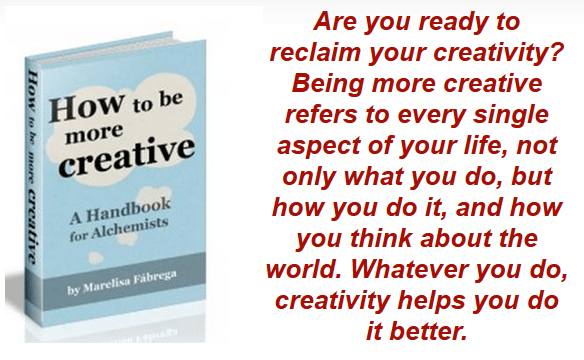
It takes more than love for your relationship to work.
Although love is the foundation of any happy romantic relationship, love is not enough. In order to have a healthy relationship, both parties have to be willing to work on it. Below you’ll find 18 ways to keep your relationship strong.
 1. Practice acceptance and appreciation. In his book, “How to Be an Adult in Relationships: The Five Keys to Mindful Loving”, David Richo explains that two of the keys to mindful loving are acceptance and appreciation. Here’s a quote from Richo that expresses this idea: “In a true you-and-I relationship, we are present mindfully, non-intrusively, the way we are present with things in nature. We do not tell a birch tree it should be more like an elm. We face it with no agenda, only appreciation . . .”
1. Practice acceptance and appreciation. In his book, “How to Be an Adult in Relationships: The Five Keys to Mindful Loving”, David Richo explains that two of the keys to mindful loving are acceptance and appreciation. Here’s a quote from Richo that expresses this idea: “In a true you-and-I relationship, we are present mindfully, non-intrusively, the way we are present with things in nature. We do not tell a birch tree it should be more like an elm. We face it with no agenda, only appreciation . . .”
2. Recognize that all relationships have their ups and downs. Just as you can’t expect to be happy all the time, you shouldn’t expect your relationship to be at a continuous high. When you make a long-term commitment to someone you have to be willing to ride the highs, as well as the lows, together.
3. Use the word “we”. Tamar Chansky, Ph.D., explains that researcher Robert Levenson and his colleagues at the University of California, Berkeley, found that couples who use the word “we” when talking are happier, calmer, and in general are more satisfied with their relationships than couples whose communication is more populated by the pronouns “you”, “me” and “I”.
Dr. Chansky explains that the word “we” is a game changer. It sets off a program of connectedness in the brain so that instead of being in a “you vs. me” mindset, we’re in a collaborative mindset. This collaborative mindset makes us more loving and generous.
4. Follow the three-day gratitude plan. Rita Watson–an Associate Fellow at Yale’s Ezra Stiles College—explains that having an attitude of gratitude will revitalize your love life. Watson indicates that a study involving 77 married heterosexual and monogamous couples found that with expressed gratitude “participants reported that they felt more loving.” She goes on as follows:
“They also reported feeling more peaceful, amused, and proud. They perceived their partner as being more understanding, validating, caring, and generally more responsive. They were more likely to have reported spontaneously thanking their partner for something they’d appreciated on any given day. And they were more satisfied with the quality of their relationship overall.”
In order to get started with bringing more gratitude into your relationship she recommends the following three-day gratitude plan:
- Day 1: Find three qualities that you love about your partner and focus on those three qualities for the entire day.
- Day 2: Identify three things that irritate you about your partner. Now forgive them for these things.
- Day 3: For the entire day speak only kind words to your significant other.
Think of the three day plan as a cleansing which allows you to clear out feelings that keep your relationship from thriving.
5. Keep the 3:1 ratio. Over the course of a day we have a variety of positive and negative experiences. This is also true when it comes to our relationship with our significant other. Most people think that as long as the positive experiences outweigh the negative, everything is fine. However, this isn’t so. It’s the ratio of positive to negative that matters.
Research has shown that the magical ratio for a flourishing relationship is at or above 3:1. That is, you need to have three times more positive experiences with your partner than negative experiences in order to have a healthy relationship.
6. Keep the novelty alive. One of the positive aspects of being in a relationship with someone for a long time is that you really get to know each other. The negative side of this is that the novelty wears off, and humans love novelty.
However, there’s a way to keep the novelty alive: constantly try new activities together. This creates the excitement and the uncertainty that comes from the unknown, even if you’re with someone whom you know as well as the back of your hand.
7. Keep the playfulness alive. We all love to play, regardless of our age. Do the following: have fun together; do something ridiculous together; and just let go. In addition, the next time that your partner says something that bothers you, try responding with a joke instead of getting defensive.
8. Give your partner space. The philosopher Arthur Schopenhauer used porcupines to explain a dilemma which often exists in human relationships. Two porcupines trying to keep warm will move closer to one another. However, if they get too close they prick each other with their spines.
The same thing happens in human relationships: we want closeness, but we also want space. The key is to find that sweet spot at which we feel the warmth that comes from being in a relationship, while at the same time allowing each partner to have enough space so that neither one feels like they’re being pricked by the other’s spines (feelings of lost individuality, feeling crowded, and so on).
9. Show each other daily physical affection. Kory Floyd, Ph.D.–a professor at Hugh Downs School of Communication at Arizona State University—explains that studies show that physical affection has a myriad of benefits. It releases feel-good hormones, it reduces blood pressure, it helps to release stress, it improves mood, and it’s associated with higher relationship satisfaction.
Showing physical affection can be as easy as kissing, holding hands, hugging, giving a back scratch, or putting a hand around the other person’s shoulder.
10. Use AAA. Mira Kirshenbaum, psychotherapist and author of “The Weekend Marriage” explains that when your significant other is upset over something you’ve done, you should apply the AAA approach. This stands for apology, affection, and a promise of action. To elaborate:
- Tell your partner that you’re sorry that you’ve hurt or disappointment them.
- Offer a meaningful gesture of warmth, such as a hug or a kiss.
- Pledge to take action that is meaningful to them.
11. Focus on the positive. Dr. Terri Orbuch has been conducting a long-term study since 1986 on what makes couples happy and strengthens relationships. She advises that couples resolve to focus on the positive. She explains that happy couples focus on what is going well in their relationship, rather than focusing on what is going wrong.
In addition, if you do need to call attention to a negative aspect, try to do it in a positive way. For example, if your partner is messy try telling them something like the following: “It makes me so happy to come home to a clean house. When things are messy I feel stressed. Let’s come up with a solution together.”

12. Create couples rituals. Sarì Harrar and Rita DeMaria are the authors of the book “ The 7 Stages of Marriage”. They recommend that you strengthen your relationship by creating rituals just for the two of you. For example, every Saturday night can be date night. Another example can be having your coffee together every morning, or taking ten minutes to chat every night before going to bed.
13. Edit yourself. Dr. John Gottman is a researcher, author and Ph.D. psychologist known for his work on relationship stability. He’s best known for his book, “The Seven Principles of Making Marriage Work”. Dr. Gottman explains that couples who avoid saying every critical thought that pops into their head when discussing touchy topics are consistently the happiest.
14. Be supportive. There are many ways to be supportive of your partner, including the following:
- Give emotional support: listen to them when they’re upset and need to talk.
- Give compliments and praise.
- Give them information that they might need.
- Give them a hand when they need it. For example, doing their house chores when they have to put in extra hours at work.
15. Allow yourself to be vulnerable. Brené Brown, author of “Daring Greatly: How the Courage to Be Vulnerable Transforms the Way We Live, Love, Parent, and Lead”, explains that vulnerability holds the key to emotional intimacy. She adds that vulnerability is about being honest with how we feel, about our fears, about what we need, and asking for what we need. It’s allowing ourselves to be truly seen by our partner, warts and all.
16. Say “I love you” with your actions. Perform little acts of kindness for your partner that let them know you love them. Some ideas include the following:
- Warm her car on a cold morning.
- Bring home take-out from his favorite Chinese restaurant.
- Get up fifteen minutes before she does so that breakfast is ready when she walks into the kitchen.
- When you’re out shopping get him a little surprise gift.
17. Fight fair. It’s not disagreements that destroy relationships, but how you deal with them. Dr. Phil—of Oprah fame—says the following about fighting fair:
“Disagreements are going to occur. The question is, do you go into it with a spirit of looking for resolution or do you go into it with a spirit of getting even, vengeance, control? You’ll never win if you do that. If you make your relationship a competition, that means your spouse has to lose in order for you to win. It’s not a competition; it’s a partnership.”
Some of the tips he offers for fighting fair are the following:
- Know what you’re trying to achieve.
- Put boundaries around the discussion so that you don’t end up arguing about every negative thing that has ever happened in your relationship.
- Avoid character assassination.
- Practice active listening. Try paraphrasing to make sure that you understood what the other person said and ask for clarification if there’s something that you’re not clear about.
- Set a time limit.
- Be willing to compromise.
- Reach an agreement on how you’re going to solve the issue.
18. Set goals as a couple. Be a team of two that’s striving to achieve a set of goals that you’ve set together and that are important to both of you. By setting goals together you’ll be achieving all of the following:
- You’ll make sure that you’re both moving in the same direction.
- Your wins are their wins.
- You can celebrate together each time you achieve a milestone.
Studies have shown that one of the most important components of happiness is striving to achieve goals that you consider to be meaningful. In turn, one of the components of a happy relationship is having a set of goals that you’re trying to achieve together.
Conclusion
Strong relationships don’t just happen. In order to have a flourishing relationship with your significant other you have to do the work. Use the 18 tips above to begin strengthening your relationship right away. After all, a healthy relationship is an important component for living a great life.





Related Posts:




 Marelisa Fabrega is a lawyer and entrepreneur. She holds a Bachelor of Science in Business Administration from Georgetown University in Washington, D.C., as well as a Juris Doctor from the Georgetown University Law Center. You can learn more about her
Marelisa Fabrega is a lawyer and entrepreneur. She holds a Bachelor of Science in Business Administration from Georgetown University in Washington, D.C., as well as a Juris Doctor from the Georgetown University Law Center. You can learn more about her 





